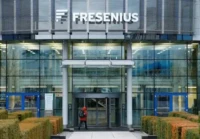European policymakers are increasingly expressing concern over the “Brussels defect,” which denotes the European Union’s reliance on market-based regulation and multilateralism for global influence.
While the EU’s approach, termed the “Brussels effect,” effectively transformed complex political issues like privacy rights into technical matters governed by market pressure, shifting geopolitical dynamics have rendered this strategy less efficient.
The rise of policies from the Trump administration, which criticized the EU’s social media regulations as Orwellian, has shifted the focus from mere economic disputes to fundamental concerns regarding democracy and national security.
In light of these challenges, the European Commission has taken a resolute stance on digital regulation, refusing to compromise on critical protections during trade negotiations. This approach emphasizes that such regulations are essential safeguards for European democracy, not just economic instruments.
There is increasing advocacy for Europe to decrease its dependence on the American tech ecosystem, leading to proposals such as the “EuroStack” initiative. This initiative aims to create an independent European technology landscape that includes key areas such as semiconductors, artificial intelligence, and digital platforms.
This marks a crucial shift towards fostering innovation that is aligned with democratic values, moving away from a purely technocratic regulatory framework.
Moreover, European officials are encouraged to reassess and move beyond outdated beliefs, fostering strategic autonomy. This shift is vital for safeguarding democratic infrastructure and ensuring that Europe’s global influence is coherent with its core values as it navigates evolving geopolitical landscapes. By embracing these changes, Europe aims to reinforce its position on the global stage while protecting its democratic principles.












Is the Brussels flaw really a priority for Europe? Maybe there are more pressing issues to address first.
I think the Brussels flaw issue needs serious attention. Europe better figure it out fast! Lets get those solutions rolling!
I dont buy it! The so-called Brussels flaw is just a distraction from bigger issues. Lets focus on real solutions.
I think the Brussels flaw is a complex issue that requires innovative solutions. What do you all think could be the way forward?